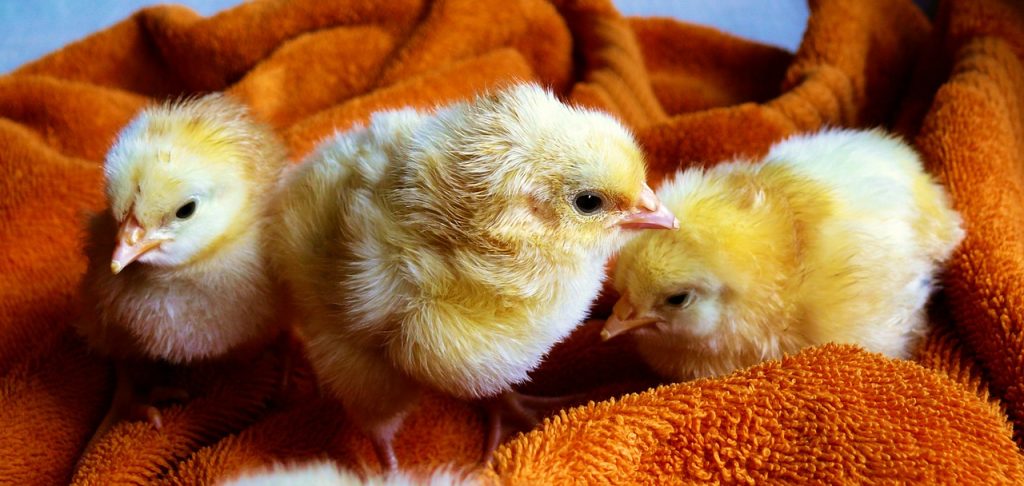
A big thanks to guest author Zac Spade.
There are several benefits to learning to keep chickens in urban areas. It is beneficial to the garden as well as the chickens. Keeping chickens for eggs, is a healthier choice to the mass processed chicken and eggs found in large chain stores. Getting eggs created from battery hens, which are used to provide for the grocery stores, has a danger of food born illness, in addition to getting remaining antibiotics in the meat and eggs.
When you choose you’re going to be raising chickens for eggs, you should think about what you’re going to need to do and how to start. This article is to give you an overall starting point.
What Do Chickens Need?
Attention. Chickens need daily attention. Not a lot, but enough that you simply can not abandon them to get a long time without feeding and watering, and protecting them from predators. Although chickens are relatively low-maintenance, they do require time for daily care. You only need 15 to 20 minutes daily (depending on the number of chickens in your flock) for replenishing their food and water and making sure that their beddings are dry.
This means if you leave town for a few days, you need to have a plan to feed and water them while you are away. You also need to know, how they will be kept safe each evening from predators?
Future chicken husbands, need to consider all these factors, preferably before you start. There are several automated ways to take care of them in addition to the probability of having some one come and care for them, but it is better to feel ahead on this one, especially in case you are actually planning a month-long excursion to Europe.
State/Council Rules And Permits
Before starting, you would want to consider your local rules and what constraints you might have to work with. Simply put, is you keeping chickens for eggs allowed in your locality? Unfortunately, not all towns do.
Check your local regulations and ordinances regarding backyard chicken raising, you may need a permit. Note that there typically different rules for domestic and commercial set ups when it comes to different localities. In addition, you also have to find out about noise regulations especially if you plan to have roosters.
Also, check with your neighbors first in order to avoid misunderstandings and future complications regarding your new hobby. You can sway their opinions with the promise of fresh, free range, organic eggs!
Do You Have The Space?
Determine how much space you have, and how many hens you’ll need to get the egg creation you wish, knowing you’ll be able to legitimately keep chickens.
If chickens are cooped (housed) then you have to ensure that they have a place to ‘hang out’ and that it is big enough and secure from any predators. Making chickens free range is best. Chickens love to walk, and poke around on the grass. It can create some small maintenance issues, however chickens will keep the grass down where they are.
It is highly recommended that at least three square meters per bird is given, the larger the space the better. The more the chickens are able to forage, the healthier and more contented they will be.
Chickens also fertilize areas where they have been, giving a small boost to your garden. Overall they can be a healthy addition to your garden.
Is There A Minimum Number To Get Started?
Because chickens are social birds and do not fare well on their own, you should therefore have a minimum of two for starters. If your family loves eggs then it is best to have two hens per family member; this should be enough to take care of your egg requirements as soon as your chickens start laying eggs.
How Much Does It Cost?
There is a significant (but not great) investment involved, depending on your situation. However, when the chickens start laying fresh eggs the up front cost becomes negligible. The largest cost will typically be your chicken coop, however this cost can be offset if you can use an existing outbuilding, or make a coop out of readily made materials.
The Chicken Coop
You want to think about chicken house plans that can work nicely in the space you’ve got available. You can purchase chicken coops, but people find it more cost effective and helpful to build their own from plans. It is important that you use plans from experienced chicken husbands. Chickens can be quite picky about their homes.
How Many Eggs Can I Expect?
It’s possible to generally figure that three hens should offer you and norm of 2 eggs each day. Chickens usually being laying at about 16-24 weeks old, although it can takes years for some chickens.
The seasons and weather in general has a large impact on chickens and their production rates. In a cold winter, egg creation can slow down as much as 50% per hen per day.
Although if the weather is fine, then a hen can put two healthful eggs every day. Two eggs per day is the optimal production for a hen. If she is laying 3-4 this can be too much for her. So much so that if she doesn’t slow down you might want to intervene, before it affects her health.
You really are in control of your egg generation. The greater care you take of your birds, the better food source they will provide for you. Keeping chickens for eggs is beneficial both to your health and your pocket.
